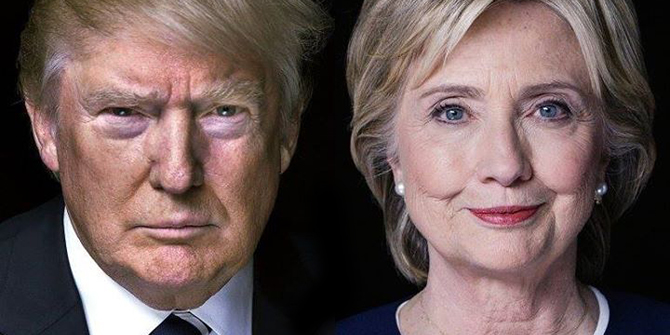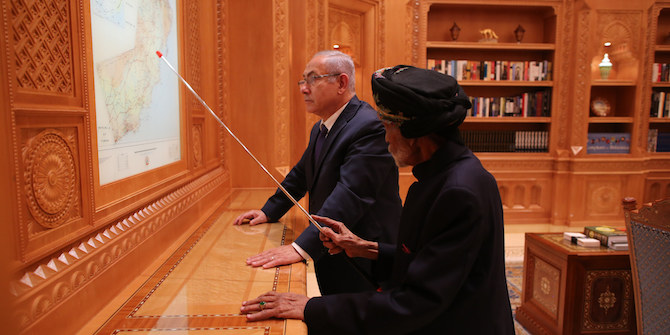by Ghada Abdulla

With the election date approaching, GCC states, just like the rest of the world, are closely watching for the next American president. With Clinton and Trump proposing opposing policies, these will have direct impact on GCC states, particularly in the energy and trade sectors.
The most important economic ties between the GCC countries and the US are in the field of energy, with around 25% of US imports of crude oil coming from the GCC. Proposed energy policies of US presidential candidates will hence have a direct impact on the GCC countries. Clinton’s energy policies and positions through her long experience as a politician are clear: they focus on restricting oil drilling operations in the US as she considers climate change an important threat.
As Senator, Clinton voted in favour of removing exploration subsidies provided to oil and gas companies. In her opinion, US oil companies enjoy high welfare, therefore policies should be introduced to control their profits and improve the management of public energy resources. In this sense, Clinton voted on several other issues that set limits on oil companies in the US; for example, she also voted for banning oil drilling in the Arctic National Wildlife Refuge (ANWR) in Alaska. As an alternative, Clinton encourages investing in renewable energy. She wants to extend Obama’s clean power plan which aims to curb greenhouse gas emissions from power plants. As stated in her election campaign, she intends to increase the number of solar panels in the US by more than half a billion during the four years of her being in office.
Trump’s suggested policies are completely opposite. He wants to stimulate the oil and gas sector and make the US energy independent. However, his aim of achieving energy independence is not in the benefit of the US. Basic economics suggest that it is most efficient to get different fuel types from the least expensive source, regardless of whether this source is local or imported.
Similarly, his policies are contradictory. He emphasizes that the government should not pick winners and losers and hence energy markets must be freed, and rules and regulations on energy companies should be removed. For example, he wants to remove laws limiting the freedom of energy companies, such as environmental laws that protect streams and wetlands from coal mining and industry in general. Yet, his policy of increasing coal production is against free market rules as it is clear that coal declined in the US due to market forces. Trump is also against the use of renewable energy, as he believes that they are an expensive source of energy, mentioning that he would terminate the clean power plan if elected.
Trump’s proposed policies are not in the interest of the GCC states. Increased oil and gas production by the US would not only reduce US imports of oil from the GCC, but also increase global oil production, directly affecting global markets.
Trump is a novice in electoral politics but he is a successful businessman, which is the foundation of his proposed policies, as reflected in his statements. For example, his plan in the event of the deterioration of the American economy is built on the basis of his experience in corporate bankruptcy; he recommends reducing the returns to creditors of US Treasury loans. This plan is reckless and could lead to a significant rise in interest rates because of the increased risk to creditors. His positions and previous experiences show that he puts his financial interests before the laws and values and similar actions are expected of him if he comes to power.
Trump’s thinking is based on greed and maximising short-term profits; for example, he stated that Saudi Arabia does not pay the US what is required of them in exchange for the protection provided by the US. For this same reason, he criticises the current trade treaties of the US and thinks that better deals can be negotiated. He also accuses China of manipulating its currency and remarked that if the Chinese did not change their behavior, he would impose a 45% tax on Chinese imports.
Protectionist policies by the US would probably result in reciprocal measures against US products. Many economists have issued warnings about Trump’s proposed policies; for example, the IMF’s Christine Lagarde said that protectionist policies, like those proposed by Trump, will slow down global growth. A slowdown in global growth will cause a fall in the global demand for oil and gas, causing a decline in the economies of the GCC states.
Clinton is more open to trade than Trump. Although she changed her view of the Trans-Pacific Partnership, now rejecting it, she often stresses the importance of free trade. When she was a senator she voted in favor of free trade with Oman, Morocco, Australia, Singapore and Chile.
An analysis by Moody’s shows that Clinton’s proposed policies would boost economic growth in the US while a full adoption of Trump’s policies will lead to a recession. Therefore, if Clinton wins, efforts will be taken to hinder the production of shale oil in the US. This, together with the predicted economic growth, will probably lead to a rise in the domestic consumption of oil and gas consumption, which would increase US imports and raise oil prices.
If Clinton wins, it will be business as usual for GCC–US economic relations. With Trump’s regular changes in positions and statements, Gulf states would prefer Clinton’s predictability over potential uncertainty.
 Ghada Abdulla is Assistant Researcher at the Bahrain Center for Strategic, International and Energy Studies. She holds an MSc in Economics from LSE. Her main research interest is in public economics, with a focus on GCC states.
Ghada Abdulla is Assistant Researcher at the Bahrain Center for Strategic, International and Energy Studies. She holds an MSc in Economics from LSE. Her main research interest is in public economics, with a focus on GCC states.







2 Comments